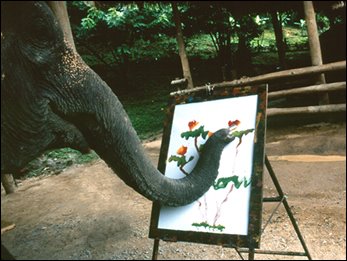The debate me and my group was assigned was the fourth, which took place in Charleston, Illinois. This particular debate was largely confined to the politicians hurling accusations at one another and defending against their opponents verbal attacks. Lincoln began with a statement clarifying his position on the equality of African Americans, followed by a long-winded accusation of conspiracy, drawing copious amounts of evidence from the speeches of one Senator Trumbull. Douglas then spent the majority of his hour and a half carefully and methodically refuting every scrap of the accusations leveled against him, time he studded with similar stabs at Lincoln's credibility. I can scarcely comprehend what qualities a person could possess that would enable them to speak before an audience of over 10,000 eager listeners for over an hour uninterrupted. The mind boggles when one considers that in order to effectively answer their opponent's arguments (which is of course the whole point of a debate) the speaker could not read from a script or rehearse their performance very far past their opening statement. Most unfortunately, this massive and intricate tapestry of vocal performance had to be read and digested by my mind, a task that would undoubtedly give any human organ a cataclysmic case of indigestion. It may come as no surprise then as I assure the reader that the transcript of this debate was one of the most dreadfully boring pieces of literature ever to gain the dubious honor of being chopped up in my hippocampus and filed away among the metaphorical shelves of my short-term memory.
However, upon completion of this near-superhuman feat, I was dropped head-first into a fathomless ocean of purest contemplation, from which I could clearly discern the profound distinctions between the debate format used in the time of Abraham Lincoln and that of our current presidential debates. In 1858, speakers were assigned great blocks of stage time, which they used to explain to the public their merits and those of their beliefs. In today's format, speakers are given questions and a time limit with which to explain how they view the issue in question and how their presidential regime would address each problem. It is not up to me to determine the format we should use, but I think that both have inherent strengths and weaknesses. On the one hand, an unregulated chunk of time poses the threat of evasion of the important issues, but it allows the candidates to go into greater detail on the nuances of their particular approach. The current format assumes the viewer to possess at least a rudimentary knowledge of current affairs, which may not always be the case, but the Q and A style allows a greater coverage of topics, both major and minor, in addition to keeping the speaker on topic.

No comments:
Post a Comment